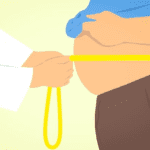How to Deal with Andropause
While discussions about hormonal changes are often centered around women and menopause, it’s crucial to recognize that men undergo hormonal shifts as well.
Andropause, often referred to as “male menopause,” is a natural but often overlooked phase in a man’s life. It is a transitional period, marked by a decline in testosterone levels and can bring about a range of physical and emotional changes.
In this brief guide, we will explore what andropause entails and provide insights into effective strategies for managing its impact.
What is Andropause?
Andropause typically occurs in middle-aged to older men, usually starting in their late 40s to early 50s. It is characterized by a gradual decline in testosterone levels, the primary male sex hormone. Unlike the sudden hormonal shifts seen in women during menopause, andropause involves a more subtle decline in testosterone over several years.
Dealing with Andropause
As men undergo hormonal shifts, it becomes essential to explore effective strategies for dealing with andropause. From seeking professional guidance to incorporating lifestyle modifications, let’s delve into a brief guide that empowers men to take control of their lives.
1. Consultation with a Healthcare Professional
The first step in managing andropause is seeking guidance from a healthcare professional. A comprehensive evaluation, including hormone level testing, can help determine the extent of hormonal changes and guide treatment decisions. A personalized assessment ensures that the chosen approach aligns with the individual’s unique health profile, fostering a more effective and tailored treatment plan.
2. Hormone Replacement Therapy (HRT)
Hormone replacement therapy, specifically testosterone replacement, is a common approach to address andropause symptoms. Under the guidance of a healthcare provider, HRT can help restore testosterone levels and alleviate associated symptoms. Regular follow-ups with the healthcare provider are essential to monitor progress, adjust hormone levels if needed, and address any concerns that may arise during the course of treatment.
3. Lifestyle Modifications
Adopting a healthy lifestyle can significantly impact the severity of andropause symptoms. Regular exercise, a balanced diet, and adequate sleep contribute to overall well-being and may help manage fatigue, weight gain, and mood changes. Engaging in activities that bring joy and fulfilment, such as hobbies or social interactions, can further enhance mental and emotional resilience during this phase of life.
4. Dietary Changes and Supplements
Certain dietary modifications, such as increasing the intake of foods rich in vitamins and minerals, can support hormonal balance. Additionally, supplements like vitamin D and zinc may benefit men experiencing andropause. Collaborating with a nutritionist or healthcare provider ensures that dietary changes and supplements are aligned with individual needs, promoting optimal health and vitality.
5. Stress Management
Chronic stress can exacerbate symptoms of andropause. Implementing stress management techniques such as meditation, yoga, or deep breathing exercises can positively impact mood and overall well-being. It’s essential to recognize and address sources of stress in both personal and professional life. Engaging in mindfulness practices not only aids in symptom relief but also contributes to an improved quality of life during this transitional period.

In your journey through andropause, remember that personalized care can make all the difference. Ryze HRT stands as your dedicated partner, offering hormone therapy solutions tailored to your unique needs. If you’re in South Carolina and seeking comprehensive support in managing andropause, our experienced team is here for you. Contact Ryze HRT today for functional medicine in South Carolina to redefine your well-being.



